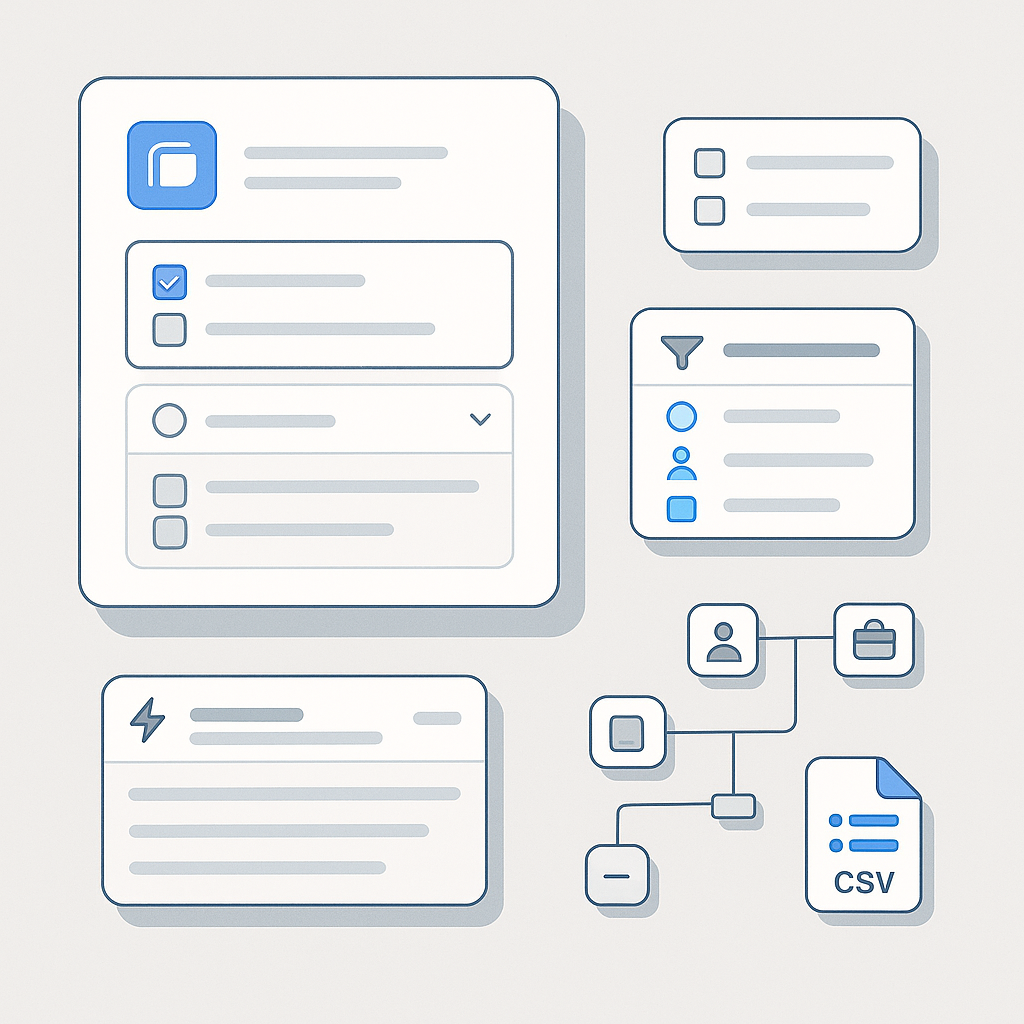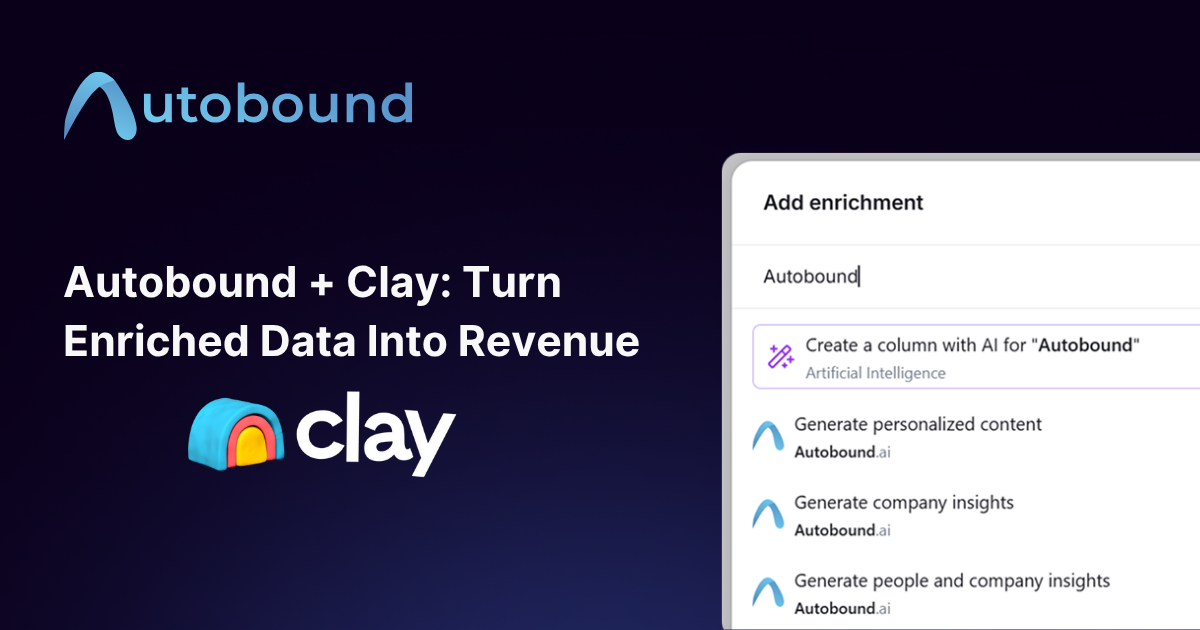I. Introduction
Let's face it, in the B2B world, chasing after lukewarm leads is like trying to make a sale at a vegan barbecue—it's a whole lot of effort for very little reward.
You know that sinking feeling when your sales team is pumped with a list of 100 companies, only to discover that a measly 10% are actually on the hunt for data engineering talent? It's like finding out your favorite coffee shop ran out of cold brew on a Monday morning—a major buzzkill.
But what if you could walk into that sales meeting with the confidence of knowing that every single company on your list is practically begging for the solutions you offer? That's the power of targeted outreach, my friend. And in today's data-driven world, where every byte of information is a potential goldmine, knowing how to pinpoint companies actively hiring data engineers is like having the keys to Fort Knox.
This guide is your treasure map, packed with proven strategies and real-world examples to help you navigate the exciting, and sometimes overwhelming, world of data engineering recruitment. We've sifted through mountains of industry data and hiring trends (because who doesn't love a good spreadsheet?) to bring you the insights you need to make smarter decisions, maximize your ROI, and leave those generic outreach templates in the dust. So, grab your metaphorical pickaxe, and let's dig into the goldmine of targeting companies hiring data engineers—your future sales pipeline will thank you.
II. Understanding the Data Engineering Landscape
Why Data Engineers are in High Demand
Before we jump into the "how" of targeting companies, let's take a step back and appreciate the "why." Why are data engineers the rockstars of the modern business world?
Well, imagine this: data is the new oil (we've all heard that one, right?), a vast and untapped resource with the potential to fuel incredible growth and innovation. But just like crude oil needs to be refined and transformed into something useful, raw data needs to be collected, processed, and analyzed to unlock its true value.
That's where our data engineering heroes come in. They're the architects and builders of the data-driven enterprise, the ones who create the pipelines, systems, and architectures that turn raw data into actionable insights. And with the global data sphere projected to reach a mind-boggling 175 zettabytes by 2025, according to IDC, the demand for these skilled professionals is only going to skyrocket.
For B2B sales and marketing teams, this translates into a massive opportunity. Companies across every industry are scrambling to build out their data capabilities, and they're willing to invest heavily in the solutions that can help them get there. By understanding the drivers behind this data engineering gold rush, you can position your products and services as essential tools for success in the data-driven age.
Skills & Roles in Demand
So, what exactly are companies looking for in a data engineer? While the field is constantly evolving, some core skills and roles remain in high demand. Think of it like this: if you were building a house, you'd need a solid foundation (programming languages like Python and SQL), sturdy framing (cloud platforms like AWS and Azure), and reliable plumbing (big data tools like Spark and Hadoop).
But just like a modern home needs more than just the basics, today's data engineers need to be well-versed in emerging technologies like machine learning and AI. A 2024 analysis of the Data Engineer Job Market highlighted the growing need for professionals who can build and manage the complex infrastructure required for AI and machine learning applications.
This means that if your B2B solutions cater to these cutting-edge areas, you're sitting on a gold mine. Companies are realizing that to truly unlock the power of AI and machine learning, they need skilled data engineers who can handle the massive datasets and complex algorithms involved. So, dust off your technical dictionaries and make sure your sales and marketing teams are well-versed in the latest data engineering lingo—it's the key to speaking your prospects' language.
Industries Facing Talent Shortages
While data engineering talent is hot across the board, some industries are feeling the heat more than others. The technology sector, unsurprisingly, is in a constant battle for top talent. With the relentless pace of innovation and the ever-growing volume of user data, tech companies are like kids in a candy store, always on the lookout for the next sugary treat (or in this case, the next brilliant data engineer).
But it's not just the Silicon Valley giants feeling the pinch. Industries like finance, healthcare, and e-commerce are also facing a severe data engineering drought. Fintech companies are leveraging data to personalize financial services and combat fraud, healthcare providers are using data to improve patient outcomes and streamline operations, and e-commerce giants are relying on data to optimize their supply chains and deliver personalized shopping experiences.
The common thread? They all need skilled data engineers to turn their data dreams into reality. By understanding the unique challenges and opportunities within each industry, you can tailor your outreach and position your solutions as the perfect fit for their specific needs.
III. Proven Strategies to Pinpoint Companies Actively Hiring Data Engineers
Now that you're well-versed in the "why" and the "who" of data engineering recruitment, let's dive into the "how." Here are some battle-tested strategies to help you separate the wheat from the chaff and zero in on companies that are actively seeking data engineering talent:
1. Leverage Job Boards and Career Pages
Job boards might seem like old news in the age of social media and AI, but trust us, they're still a goldmine for savvy recruiters. Platforms like LinkedIn, Indeed, and industry-specific job boards are like giant databases of opportunity, just waiting for you to unlock their secrets.
The key is to use advanced search filters to narrow down your search and target companies that are specifically seeking data engineering talent. Don't be afraid to get granular with your keywords. Instead of just searching for "data engineer," try variations like "AWS Data Engineer," "Snowflake Engineer," or "Machine Learning Engineer" to surface more targeted results.
And don't forget about company websites! Many organizations prominently feature open roles on their "Careers" pages, offering a direct line to potential opportunities. Think of it like this: if a company is actively promoting their open data engineering roles, it's a clear sign that they're serious about finding the right talent.
2. Monitor Industry Events and Conferences
Remember those industry events and conferences we mentioned earlier? Well, they're not just for networking and staying ahead of the curve—they're also prime hunting grounds for spotting companies on the prowl for data engineering talent.
Think about it: companies that are actively hiring often sponsor or attend industry events related to data engineering, big data, or cloud computing. They're eager to showcase their brand, network with potential candidates, and get a feel for the latest trends.
Major data and analytics conferences like Strata Data Conference and Data + AI Summit are like all-you-can-eat buffets for recruiters. But don't just show up and stuff your face (metaphorically speaking, of course). Engage with attendees, strike up conversations with speakers, and keep your ears peeled for any mentions of hiring plans. You never know what valuable nuggets of information you might overhear.
3. Track Technology Adoption
Here's a little secret: companies that are investing heavily in data-intensive technologies are more likely to need data engineers. It's like this: if you buy a fancy new sports car, you're going to need someone who knows how to drive it, right?
Tools and platforms like BuiltWith, G2, and StackShare can be your secret weapons in this endeavor. They allow you to track which companies are adopting new technologies, giving you valuable insights into their data maturity and potential hiring needs.
For example, if a company recently adopted a new cloud data warehouse solution like Snowflake or implemented a real-time data streaming platform like Kafka, it's a strong indicator that they might be expanding their data engineering team. They're essentially waving a giant flag that says, "We love data, and we need someone to help us manage it!"
4. Follow Funding Announcements and Growth Metrics
Companies that have recently received funding or experienced rapid growth are like newlyweds—they're in an exciting phase of expansion and are likely looking to build their nest (or in this case, their data team).
Keep a close eye on funding announcements through platforms like Crunchbase and PitchBook, or set up alerts for industry-specific news outlets. These announcements often provide valuable insights into a company's growth trajectory and future hiring plans.
For example, if a SaaS startup just raised a Series B round to fuel product development and data analytics, there's a high chance they'll be seeking data engineering talent to support that growth. They're essentially sending out a bat signal for data engineers, and it's your job to answer the call.
5. Monitor Social Media Signals
Social media isn't just for cat videos and political rants—it's also a powerful tool for recruitment. Platforms like LinkedIn and Twitter are goldmines of information about companies' hiring plans, especially when it comes to in-demand roles like data engineering.
Set up social listening alerts for keywords related to "data engineer hiring," "data team expansion," or even specific technologies. You can also follow influential voices in the data engineering space, such as prominent bloggers, authors, and conference speakers.
For example, if a VP of Engineering posts on LinkedIn about "building a world-class data team," it's a clear sign that they're actively recruiting. Think of it like this: they're essentially putting out a "We're Hiring!" sign on their digital storefront.
6. Engage with Industry Thought Leaders
Remember those influential voices in the data engineering space we mentioned earlier? Well, they're not just valuable sources of information—they're also powerful allies in your quest for top talent.
Engaging with these thought leaders—following their content, sharing their articles, participating in discussions they initiate—can help you build relationships, gain visibility, and position your brand as a thought leader in the data engineering space.
Think of it like this: if you're seen as a valuable member of the data engineering community, you're more likely to be top of mind when those thought leaders hear about companies that are hiring. It's all about building relationships and establishing yourself as a trusted resource.
7. Utilize Data Enrichment Tools
Data enrichment platforms like ZoomInfo, Clearbit, and LeadGenius are like those magical maps in fantasy novels—they can reveal hidden paths and valuable treasures that you wouldn't find on your own.
These tools append valuable data to your existing leads, including hiring signals, company size, revenue, tech stack, and even open job titles. This information can help you qualify leads, prioritize your outreach, and tailor your messaging to each company's specific needs.
For example, if you're targeting a company that's actively hiring for data engineers and using a specific cloud platform, you can use that information to personalize your outreach and position your solutions as the perfect fit for their technical environment.
8. Don't Forget About Your Network
In the world of recruitment, sometimes the best leads come from the most unexpected places—your existing network. Think about it: your former colleagues, industry peers, and LinkedIn connections are a goldmine of information about companies that are hiring, especially for in-demand roles like data engineering.
Don't be afraid to reach out to your network and ask if they know of any companies that are actively seeking data engineering talent. A simple message like, "Hi [Name], I'm working on a project to connect with companies that are expanding their data teams. Do you know of any organizations that are currently hiring data engineers?" can work wonders.
You never know who might have their ear to the ground or a connection at a company that's actively recruiting. Remember, networking is a two-way street—be helpful and offer to return the favor if you hear of any relevant opportunities.
IV. Crafting Effective Outreach to Companies Hiring Data Engineers
You've identified your ideal prospects—now it's time to make a killer first impression. But in the crowded inbox of a data engineering hiring manager, generic outreach is about as welcome as a telemarketer during dinner. Here's how to craft messaging that cuts through the noise and makes them want to learn more:
Personalization is Key
In the world of B2B outreach, personalization is the name of the game. Companies hiring data engineers are bombarded with generic cold emails and templated LinkedIn messages that scream, "I know nothing about your company, but please buy my product!"
To stand out, you need to ditch the one-size-fits-all approach and tailor your messaging to each company's specific needs, industry, and stage of growth. Take the time to research their business, understand their challenges, and identify how your solutions can help them achieve their goals.
Mentioning relevant news, recent funding rounds, or even shared connections can significantly increase your chances of getting a response. Remember, you're not just selling a product or service—you're offering a solution to their unique data challenges. Make it personal, make it relevant, and make it about them.
Highlighting Relevant Value Propositions
When crafting your messaging, it's tempting to lead with a laundry list of features and benefits. But let's be honest, no one wants to wade through a wall of text about your product's amazing capabilities.
Instead, focus on the outcomes. How can your solutions help companies hiring data engineers achieve their specific goals? Can you help them increase data accessibility and insights? Improve data quality and governance? Enhance data-driven decision-making? Accelerate time-to-market? Reduce operational costs and increase efficiency?
By focusing on the tangible benefits your solutions offer, you'll capture their attention and demonstrate that you understand their needs. Remember, it's not about what your product does—it's about what it can do for them.
Tailoring Messaging to Different Personas
Not all stakeholders within a company have the same priorities or pain points. A VP of Engineering might be more interested in scalability and security, while a Data Engineering Manager might prioritize ease of use and team productivity.
Take the time to understand the different personas involved in the data engineering hiring process and tailor your messaging accordingly. A message that resonates with a VP of Engineering might fall flat with a Data Engineering Manager.
By speaking to their specific needs and interests, you'll increase your chances of getting your foot in the door and starting a meaningful conversation. Remember, it's not about casting the widest net—it's about casting the right net.
V. Measuring Success: Tracking Your ROI
In the data-driven world of B2B sales and marketing, tracking your results isn't just a good idea—it's essential. By monitoring key metrics, you'll gain valuable insights into what's working, what's not, and how you can optimize your targeting efforts over time.
Think of it like this: if you were a gardener, you wouldn't just plant your seeds and hope for the best. You'd track the amount of sunlight, water, and nutrients each plant receives to ensure optimal growth.
Here are some key metrics to keep a close eye on:
- Website Traffic from Target Companies: Are companies actively hiring data engineers visiting your website? If so, which channels are driving the most traffic? This metric can help you understand which of your targeting efforts are most effective.
- Content Engagement: Are prospects downloading your data engineering-related content? This is a good indicator of their interest level and stage in the buyer's journey. Track downloads of relevant content, such as case studies, white papers, and webinars, to measure engagement.
- Lead Generation: How many qualified leads are you generating from your targeting efforts? Track the source of each lead to identify your most effective channels. This metric can help you understand which of your outreach efforts are most successful.
- Sales Conversion Rates: How many of those leads are converting into paying customers? By analyzing conversion rates, you can identify areas for improvement in your sales process. This metric can help you understand how effectively you're converting leads into customers.
- Customer Lifetime Value: What's the long-term value of customers acquired through this targeted approach? Understanding customer lifetime value can help you make informed decisions about your marketing budget and sales strategies. This metric can help you understand the long-term ROI of your targeting efforts.
VI. Conclusion
In today's data-driven world, targeting companies hiring data engineers is no longer a "nice-to-have"—it's a strategic imperative for B2B sales and marketing teams. By understanding the data engineering landscape, leveraging proven targeting strategies, and crafting personalized, persona-based outreach, you can connect with the right prospects, engage them with relevant messaging, and drive meaningful results for your business.
As the demand for data engineering talent continues to soar, staying ahead of the curve will be essential for success. So, embrace the power of data, refine your targeting strategies, and watch your sales pipeline flourish.
About Autobound
Autobound's leading AI-powered platform delivers 350+ unique insights for go-to-market teams from financial filings, social media activity, 35 news events, competitor trends, job changes and more. Trusted by 7,000+ companies including TechTarget and validated by 220+ 5-star G2 reviews, we're unlocking hyper-personalization at scale, with native integrations for Salesloft, Outreach, and more. Leverage our developer-friendly API, try our Chrome extension, try our platform free, or contact our team to eliminate guesswork and drive measurable growth →
Built with love in San Francisco, CA




